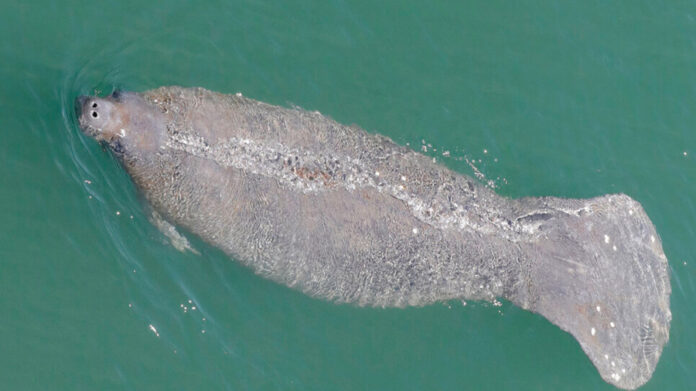Posted:
/ Updated:
TAMPA, Fla. (WFLA) – September 7 is designated as International Manatee Day, and is especially important to marine biologists like Anmari Alvarez Aleman, who has dedicated her career to studying wildlife genetics in an effort to promote flexible international conservation plans.
In 2007, Alvarez Aleman, who’d recently graduated with a biology degree from the University of Havana (and later earned her Ph.D. at the University of Florida), was excited to rescue her first wild manatees. Two manatees had been found inside the intake of a power plant canal. She hitch-hiked the 40 miles to North Havana to analyze their predicament and help free them. At the time, she’d noticed unusual marks on the creatures: scarring, that looked like those caused by collisions with boats.
She shared photos of the animals with her mentor, James “Buddy” Powell, then executive director of the nongovernmental organization Sea to Shore Alliance, and now Vice President of Research and Conservation at Clearwater Marine Aquarium’s Research Institute. Powell realized the manatees weren’t locals. In fact, they belonged to the subspecies of manatee native to Florida, not Cuba, and the female manatee’s whereabouts had been tracked since 1979. A year earlier, she’d been located in Florida. Alvarez Aleman’s discovery was the first documented sighting of a Florida manatee in Cuban waters.
“I realized how little we knew about manatees, and how the population had changed,” says Alvarez Aleman, who committed to studying genetics in an effort to understand if animals are migrating, or mating, between populations.
Education and conservation measures in Florida have been showing a positive trend, helping increase the population of the Florida subspecies of manatees. However, collisions with boats continue to be the leading cause of deaths for the animals. But in Cuba, where few restrictions are in place to enforce protection of manatees, the leading cause of death is poaching.
“Hunting manatees is illegal in Cuba, but people are still using the manatee meat,” says Alvarez Aleman.
Alvarez Aleman, now the Caribbean Research Director at Clearwater Marine Aquarium’s Research Institute, says a rare, second sighting of a Florida subspecies in Cuba occurred in 2017. She says the animal was sighted again in Florida in early 2020. There haven’t been any sightings of the Cuban subspecies of manatees in Florida’s waters.
There are several theories about why Florida subspecies of manatees may have been sighted in Cuba. It’s possible they were simply lost; or it could be that the growing manatee population is resulting in animals traveling south for food. It’s also possible that more significant environmental factors, including climate change and red tide, play a role in the phenomenon. The genetic research conducted by Alvarez Aleman could help answer some of these questions.
Fortunately, for years scientists in the US and Cuba have successfully navigated political challenges to jointly study manatee populations, as well as other marine creatures. Ongoing research by marine biologists including Alvarez Aleman will add to the body of data that scientists need to develop flexible conservation plans, for Florida waters and beyond.
Learn more about the work of Alvarez Aleman, and the Research Institute, at the Clearwater Marine Aquarium’s website.
LATEST STORIES:














